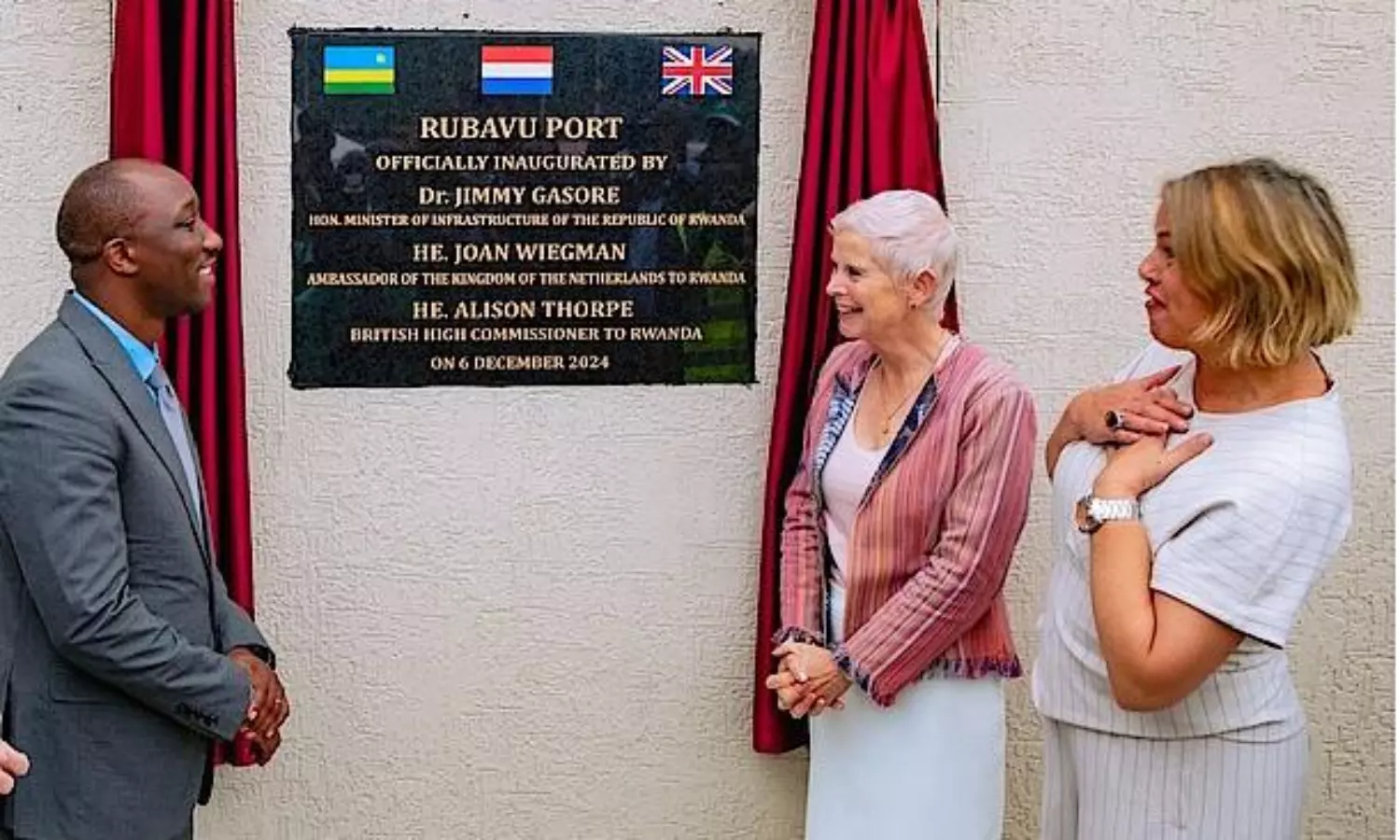Rwanda inaugurates state-of-the-art Rubavu Port on Lake Kivu
Rubavu Port is the first of 4 ports planned along Lake Kivu as part of Rwanda's National Strategy for Transformation.

Hon. Minister of Infrastructure, Dr. Jimmy Gasore, alongside H.E. Joan Wiegman, Ambassador of the Kingdom of the Netherlands to Rwanda, and H.E. Alison Thorpe, United Kingdom High Commissioner to Rwanda, during the unveiling of the inauguration stone
Rwanda has achieved a significant milestone with the inauguration of Rubavu Port, a state-of-the-art facility located on the shores of Lake Kivu in the Western Province. The port was officially opened by Minister of Infrastructure, Dr. Jimmy Gasore, in the presence of dignitaries from the Netherlands and the United Kingdom.
The $9 million project was made possible through the collaborative efforts of the Government of Rwanda and its development partners. The Foreign, Commonwealth & Development Office (FCDO) financed 50% of the project, while the Kingdom of the Netherlands contributed 45%, and the Government of Rwanda funded the remaining 5%.
Rubavu Port is the first of four ports planned along Lake Kivu as part of Rwanda's National Strategy for Transformation. The port has been designed to transform Rwanda's transportation landscape, with a cargo handling capacity of 700,000 tons per year and the ability to accommodate two ships of up to 60 metres each.
An aerial view of Rubavu Port.
The port is expected to significantly reduce transportation costs, ease cargo and passenger movement, and facilitate cross-border trade. It also boasts a passenger capacity of 2.7 million per year, making it a critical hub for trade and connectivity in the Lake Kivu region.
According to Minister Dr. Jimmy Gasore, Rubavu Port is more than just a facility—it's a gateway to prosperity, connectivity, and opportunities. The port is a testament to what can be achieved through partnerships and collaboration.
The inauguration of Rubavu Port has been hailed as a significant milestone in regional development and collaboration. The port is expected to play a pivotal role in contributing to Rwanda's economic growth, job creation, and innovation while strengthening regional value chains.
The Director General of the Rwanda Transport Development Agency (RTDA), Imena Munyampenda, emphasised that the port is a critical step in Rwanda's inland water transport strategy. “Port development is a prerequisite for the success of overall maritime transport initiatives. This port will pave the way for the operation of ferry services on Lake Kivu, reducing dependence on road transport, which currently incurs high costs for maintenance and logistics,” he noted.
In addition to its economic benefits, the port has already created jobs for over 120 individuals organised into cooperatives, with plans for further job opportunities at the other planned ports. The port's operations will be monitored through the Lake Kivu Navigability App, ensuring efficiency and sustainability.


